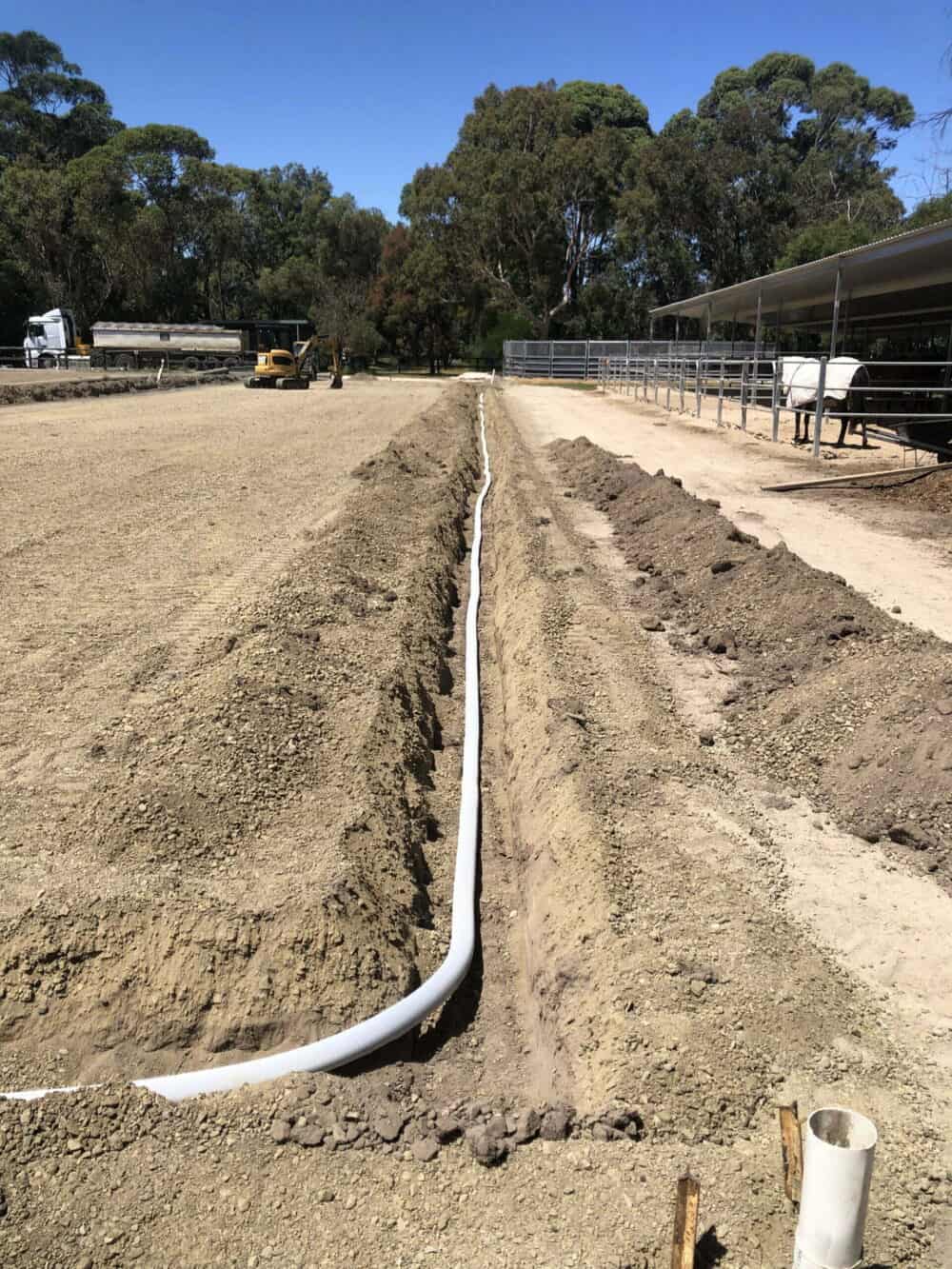For several critical reasons. Neglecting drainage can lead to a range of problems that can affect the safety, usability, and longevity of the arena:
Including
- Safety
- Footing Quality
- Arena Longevity
- Health of Horses Mold and Mildew
- Freeze-Thaw Cycle
- Ongoing Maintenance & Cost
Proper drainage is absolutely essential in a horse arena for several critical reasons.
Proper drainage is absolutely essential in a horse arena for several critical reasons. Neglecting drainage can lead to a range of problems that can affect the safety, usability, and longevity of the arena:
- SafetyFoot
- Arena Longevity
- Health of Horses
- Mold and Mildew
- Freeze-Thaw Cycle
- Maintenance Effort & Ongoing Costs
Arena Safety
Adequate drainage prevents the accumulation of water on the arena surface, which can create slippery and unsafe conditions for horses and riders.
Standing water can lead to accidents, falls, and injuries.
Footing Quality
Waterlogged footing can become uneven, compacted, and unstable.
This can impair a horse’s movement, reduce the effectiveness of training, and increase the risk of injury due to inconsistent or slippery surfaces.
Arena Longevity
Health of Horses
Prolonged exposure to wet conditions can lead to hoof issues like thrush and softening of the hoof. This condition has the potential of causing discomfort and lameness in horses.
Mold and Mildew
Accumulated moisture can foster the growth of mold, mildew, and bacteria in the footing, which can negatively impact air quality for both horses and riders.
Freeze-Thaw Cycle
In colder climates, standing water can freeze, creating hazardous conditions for both horses and riders.
The expansion of freezing water can also lead to surface irregularities and damage..
Maintenance Effort
A lack of proper drainage requires more frequent and labor-intensive maintenance efforts, as it becomes necessary to manually remove water, repair damage, and re-level footing.
Cost Efficiency
Investing in proper drainage during the arena’s construction phase is more cost-effective than dealing with ongoing repairs and modifications due to poor drainage later on.
To ensure an effective drainage system in a horse arena, consider the following:
Grading: The arena’s surface should be properly graded to promote water flow away from the center and prevent pooling.
Sloping: The arena should have a gentle slope that directs water to designated runoff areas, such as swales or drainage ditches.
Subsurface Drainage: Installing a subsurface drainage system, such as French drains or perforated pipes, can help channel water away from the arena surface and prevent water accumulation in the base layer.
Base Layer: Constructing a well-compacted and properly graded base layer can enhance water drainage and prevent water from saturating the footing.
Footing Material: Choose footing materials that allow water to drain through and resist compaction, promoting a stable and well-draining surface.
Incorporating proper drainage into your horse arena construction or improvement project is a critical investment in the safety, functionality, and longevity of the facility.
Consulting with professionals experienced in arena construction can help you design and implement an effective drainage system that suits your arena’s specific needs..

